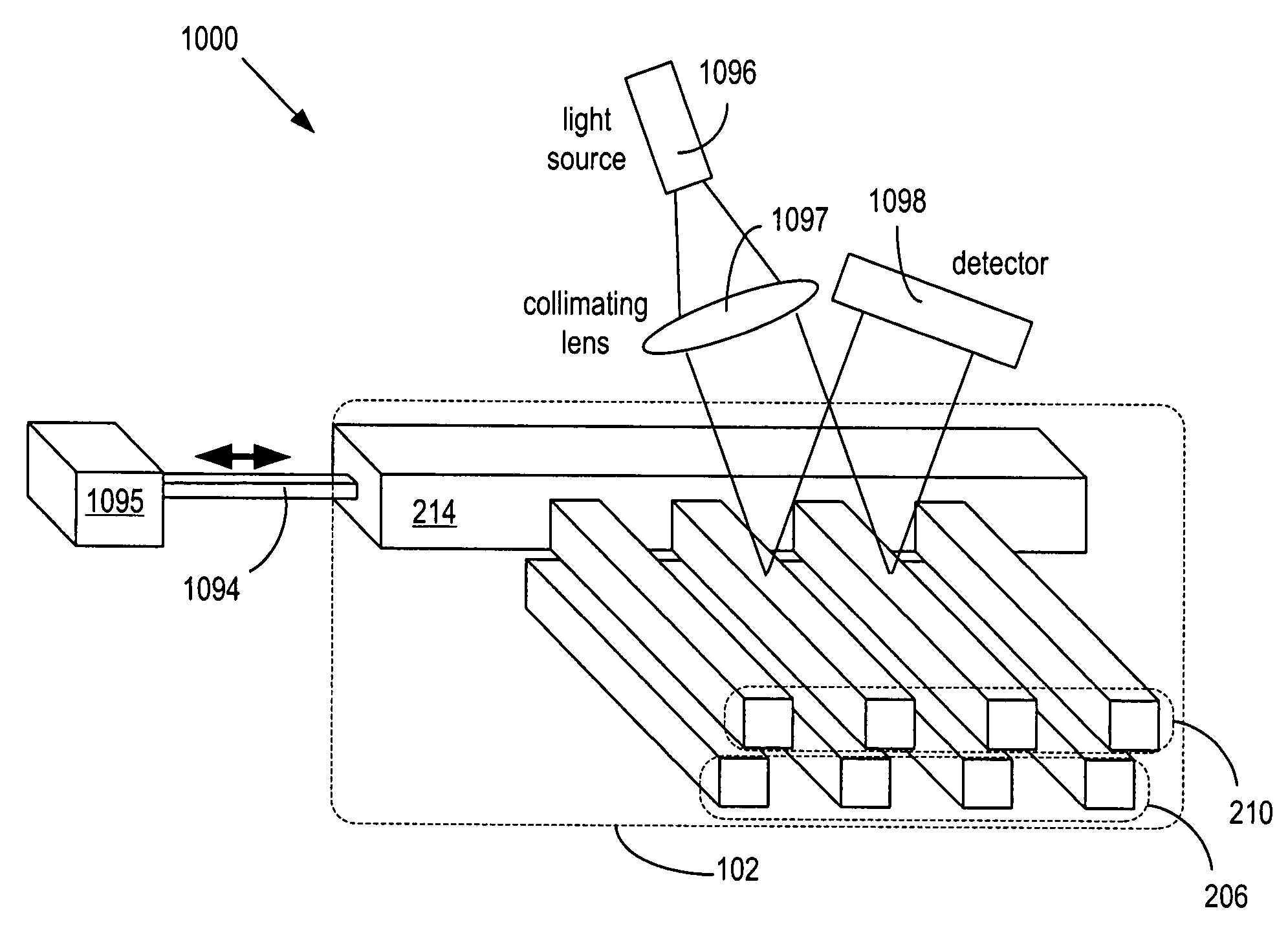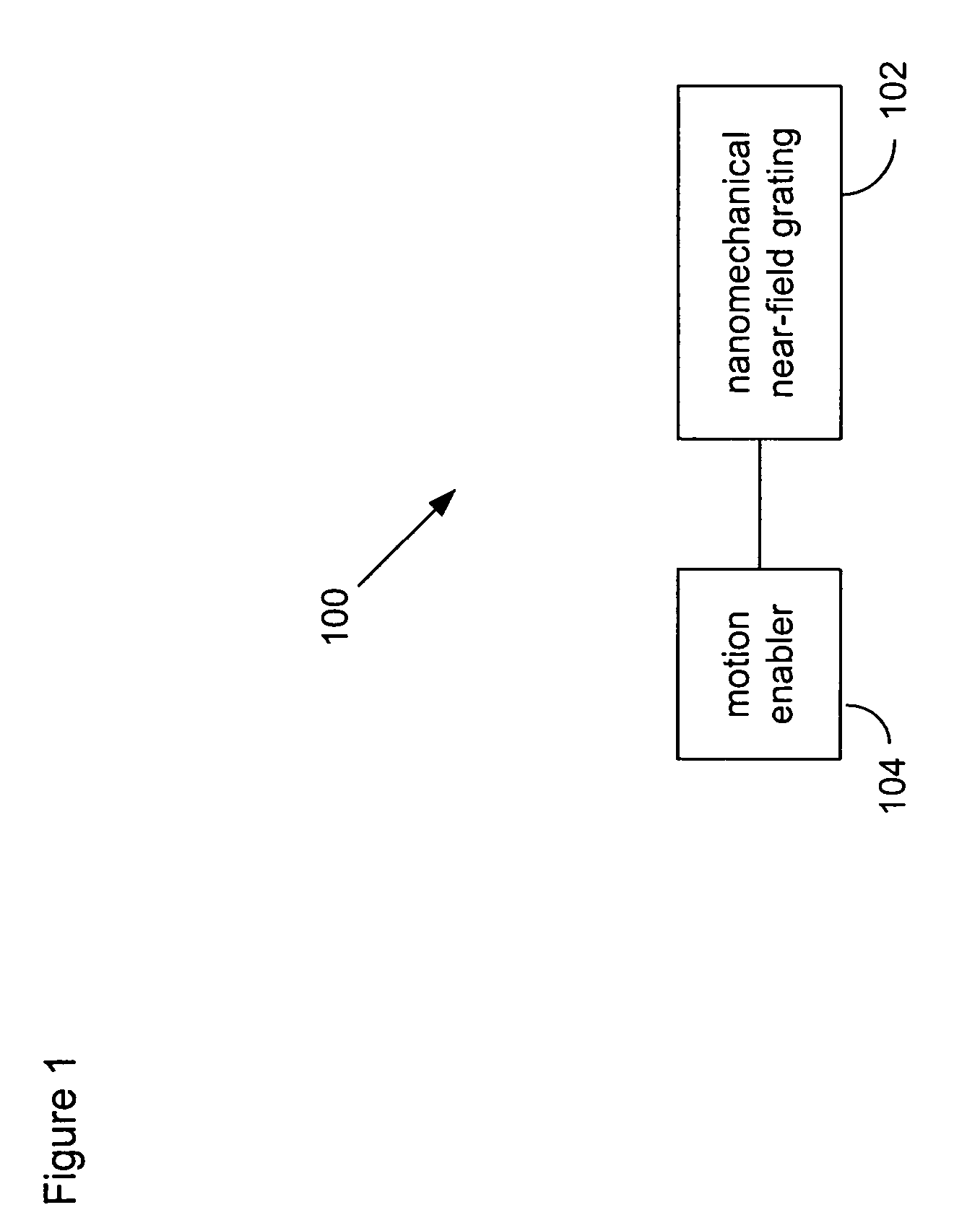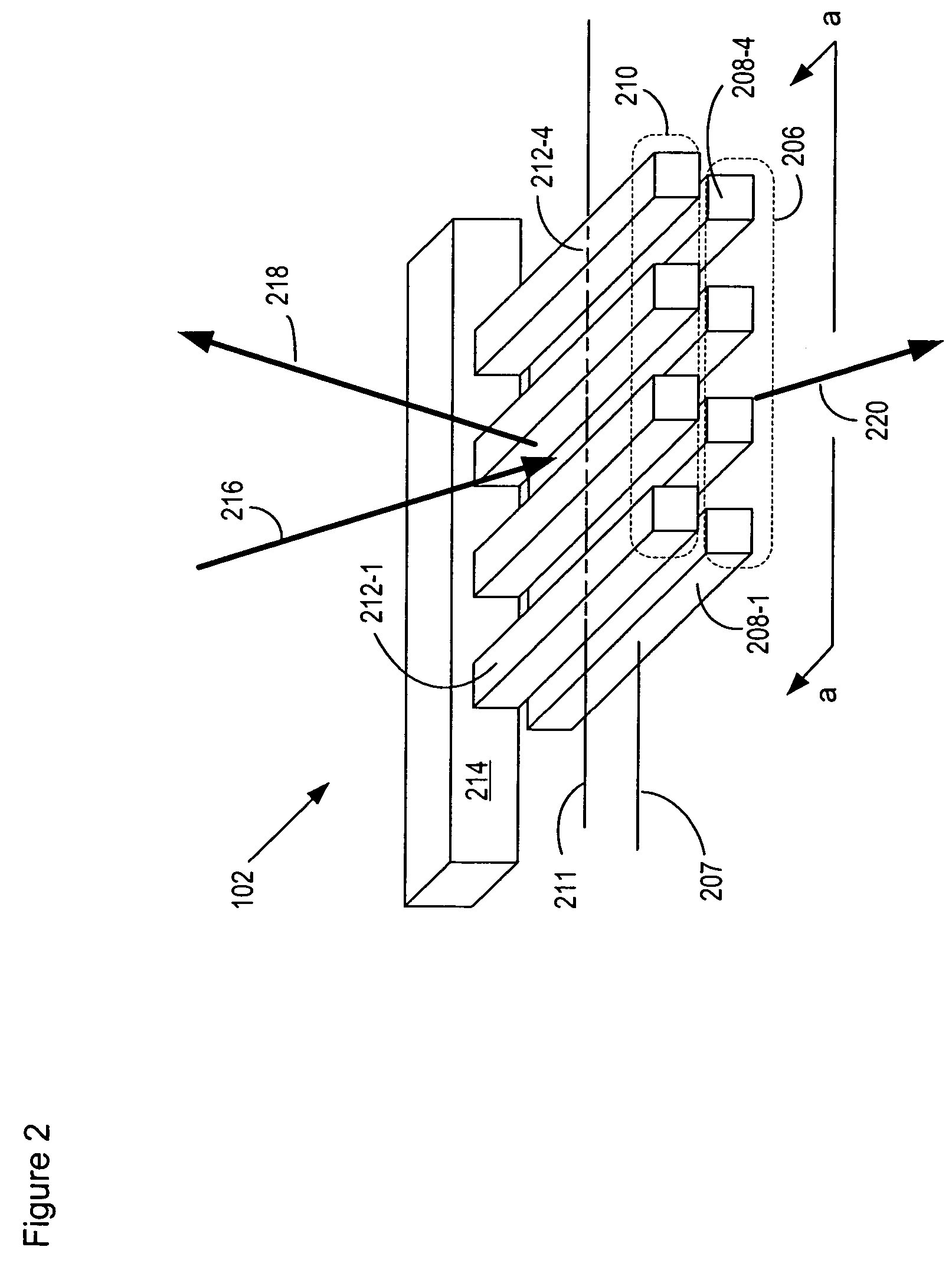Apparatus comprising a tunable nanomechanical near-field grating and method for controlling far-field emission
a nanomechanical, near-field grating technology, applied in the field of optics, can solve the problems of reducing the diffraction rate, affecting the diffraction rate,
- Summary
- Abstract
- Description
- Claims
- Application Information
AI Technical Summary
Benefits of technology
Problems solved by technology
Method used
Image
Examples
Embodiment Construction
[0032]FIG. 1 depicts a schematic view of a tunable nanomechanical near-field grating in accordance with the illustrative embodiment. As used in this specification, the phrase “nanomechanical near-field grating” is defined as a grating comprising line-elements that have width and thickness less than one micron, and wherein at least some of the line-elements are separated by a distance less than the operating wavelength of the grating.
[0033]Tunable nanomechanical near-field grating 100 comprises nanomechanical near-field grating 102 (hereinafter, “grating”) and motion enabler 104. As depicted in FIG. 2, grating 102 comprises sub-gratings 206 and 208. Sub-grating 206 includes line elements 208-i, i=1,4 (collectively, line-elements 208), which are spaced uniformly along lateral axis 207. Sub-grating 210 includes line-elements 212-i, i=1,4, (collectively, line-elements 212), which are spaced uniformly along lateral axis 211. Line-elements 212 depend from beam 214. Each line-element 208-i...
PUM
 Login to View More
Login to View More Abstract
Description
Claims
Application Information
 Login to View More
Login to View More - R&D
- Intellectual Property
- Life Sciences
- Materials
- Tech Scout
- Unparalleled Data Quality
- Higher Quality Content
- 60% Fewer Hallucinations
Browse by: Latest US Patents, China's latest patents, Technical Efficacy Thesaurus, Application Domain, Technology Topic, Popular Technical Reports.
© 2025 PatSnap. All rights reserved.Legal|Privacy policy|Modern Slavery Act Transparency Statement|Sitemap|About US| Contact US: help@patsnap.com



